Ophthalmologist Cover Letter Examples

May 29, 2025
|
12 min read
Focus your vision: Craft your standout ophthalmologist cover letter. Learn how to highlight your skills, eye-catching achievements, and experience with precision, ensuring your application is a perfect match for the opportunity you seek.
Rated by 348 people
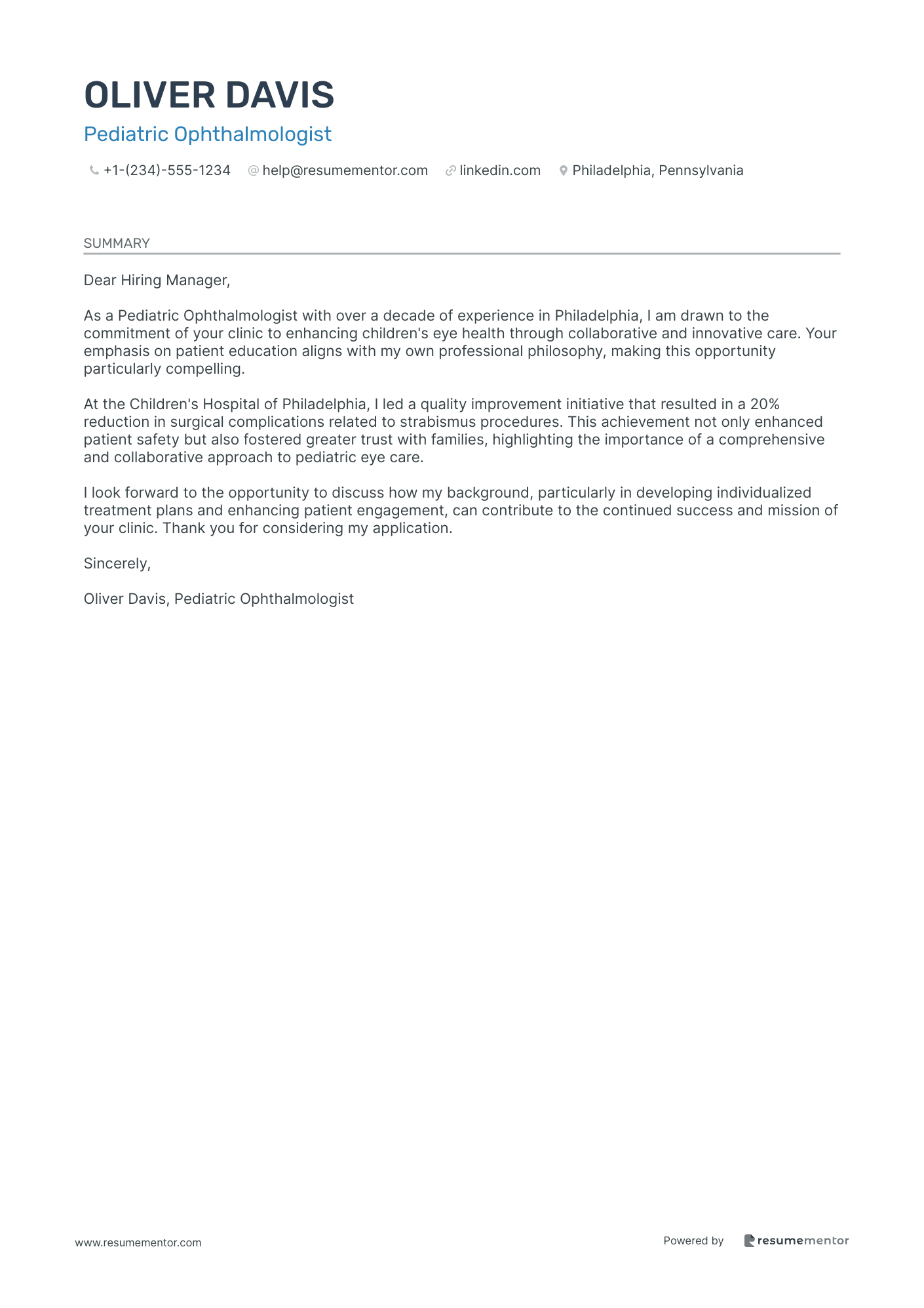
Pediatric Ophthalmologist
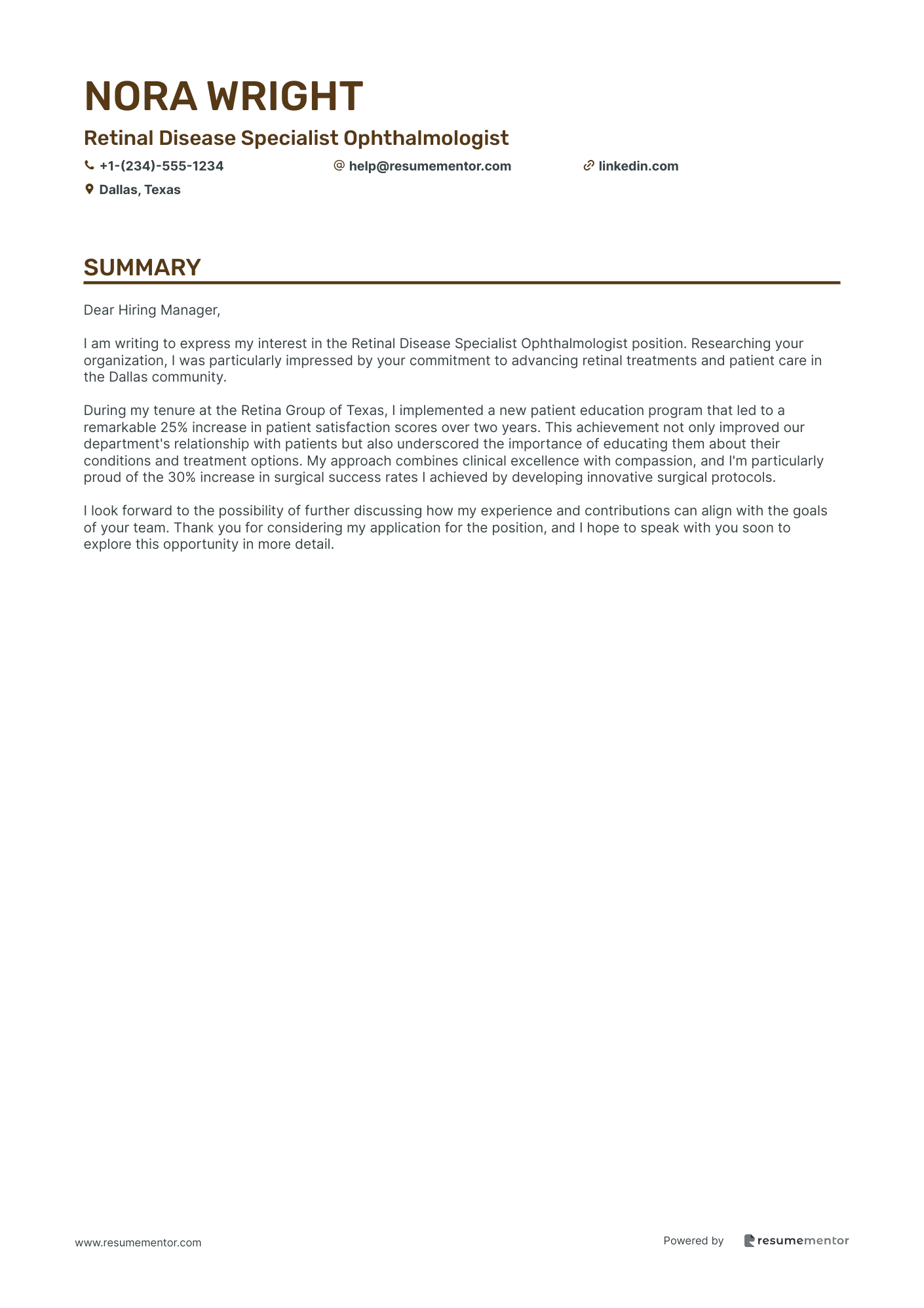
Retinal Disease Specialist Ophthalmologist
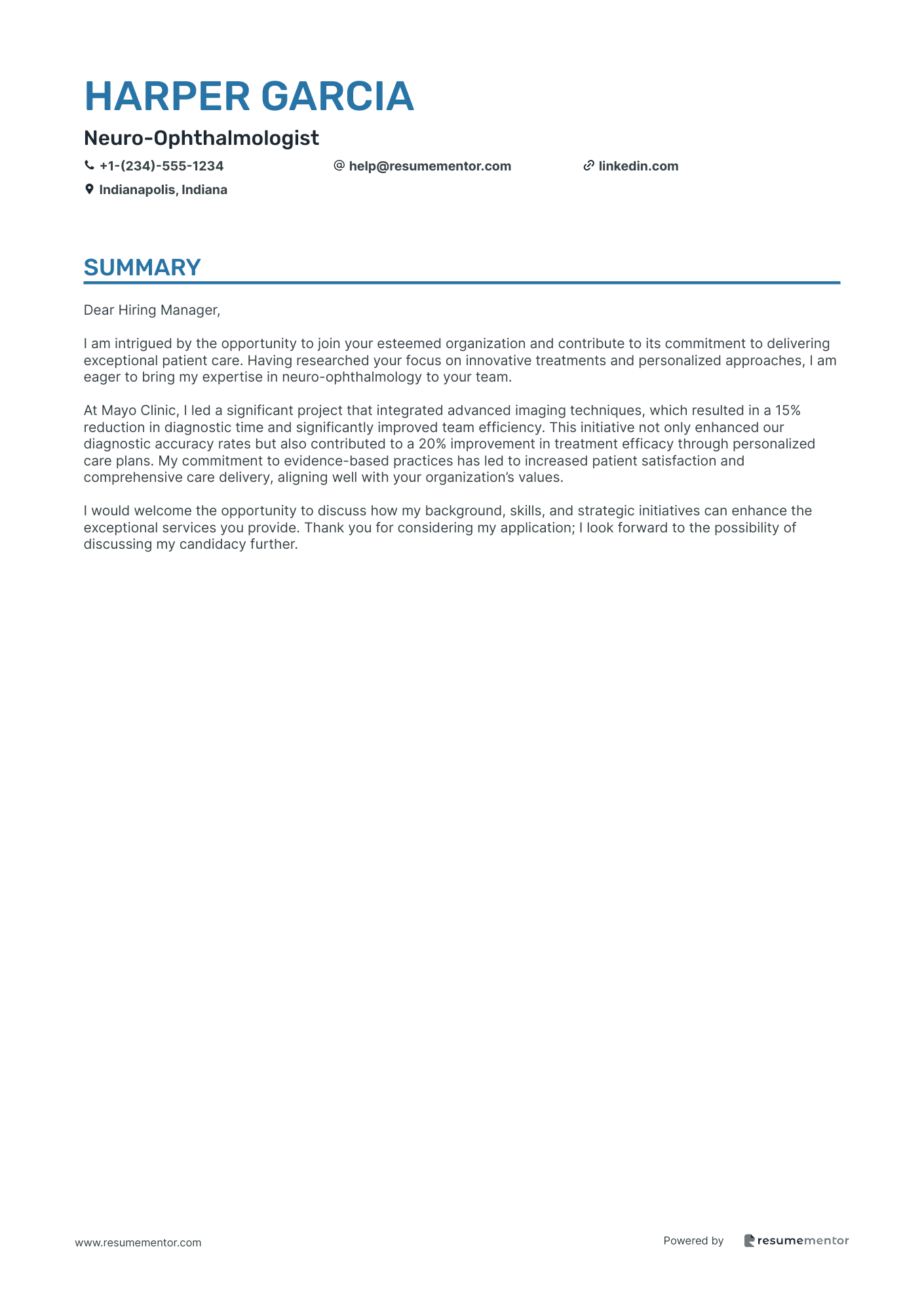
Neuro-Ophthalmologist
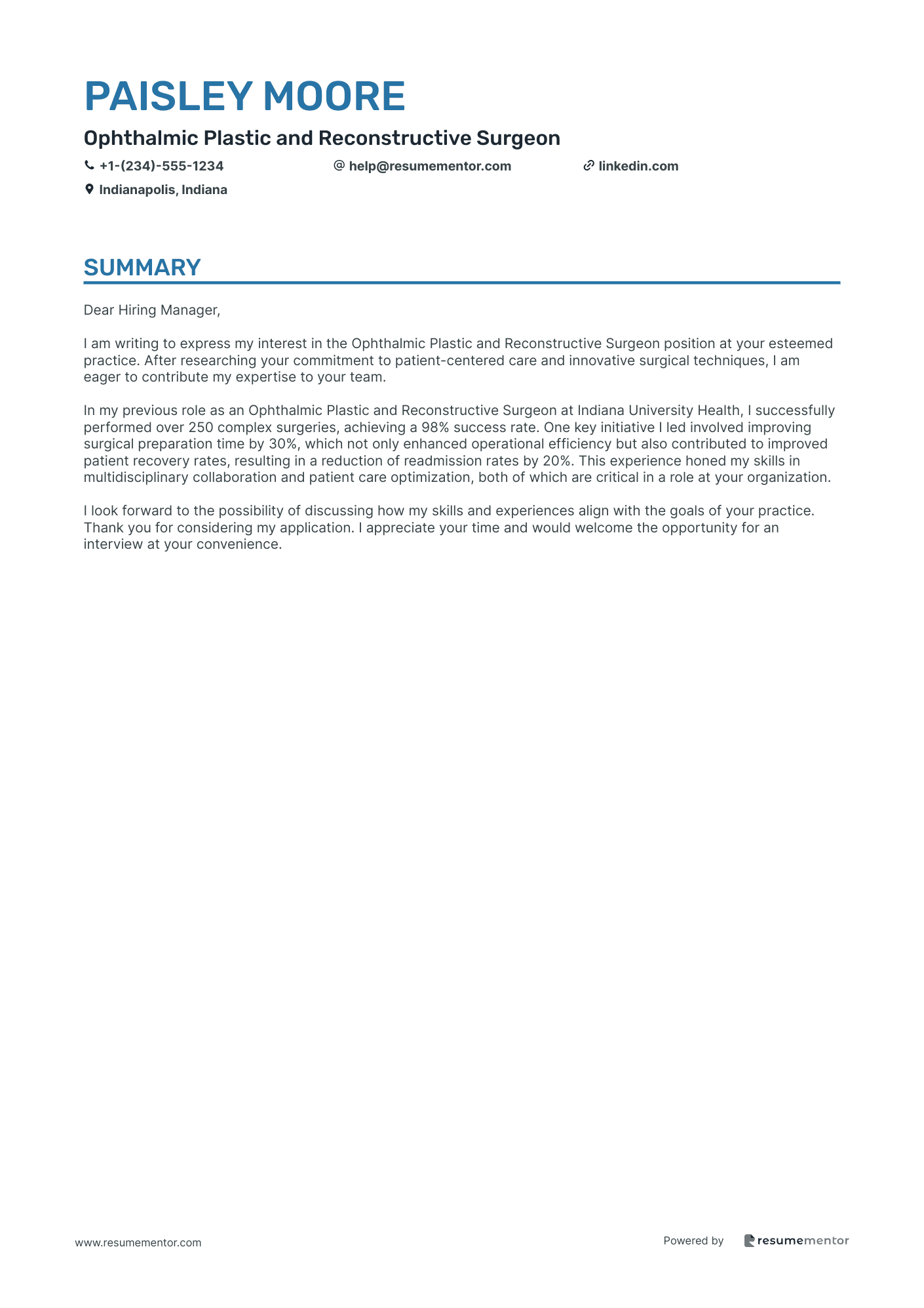
Ophthalmic Plastic and Reconstructive Surgeon
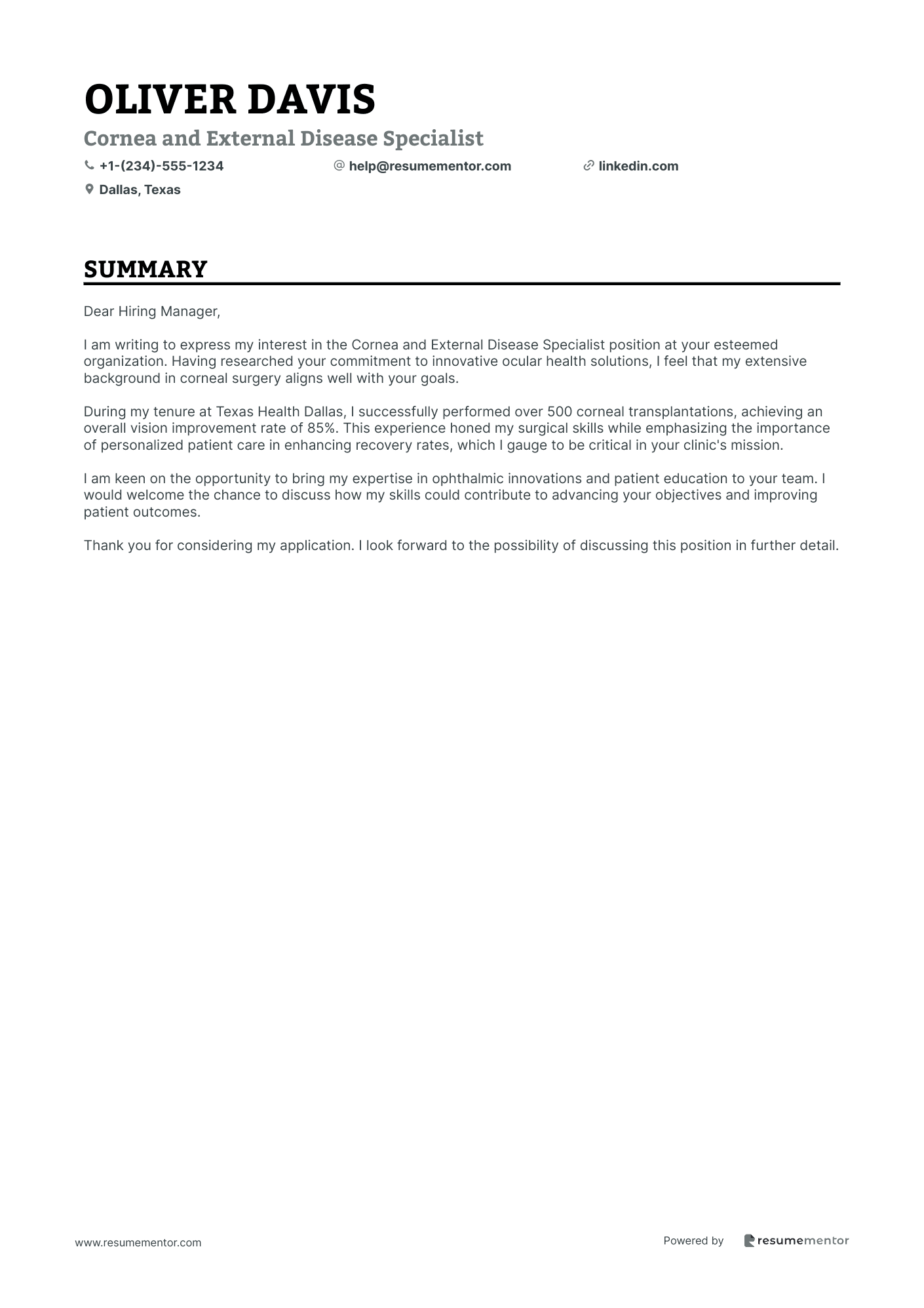
Cornea and External Disease Specialist
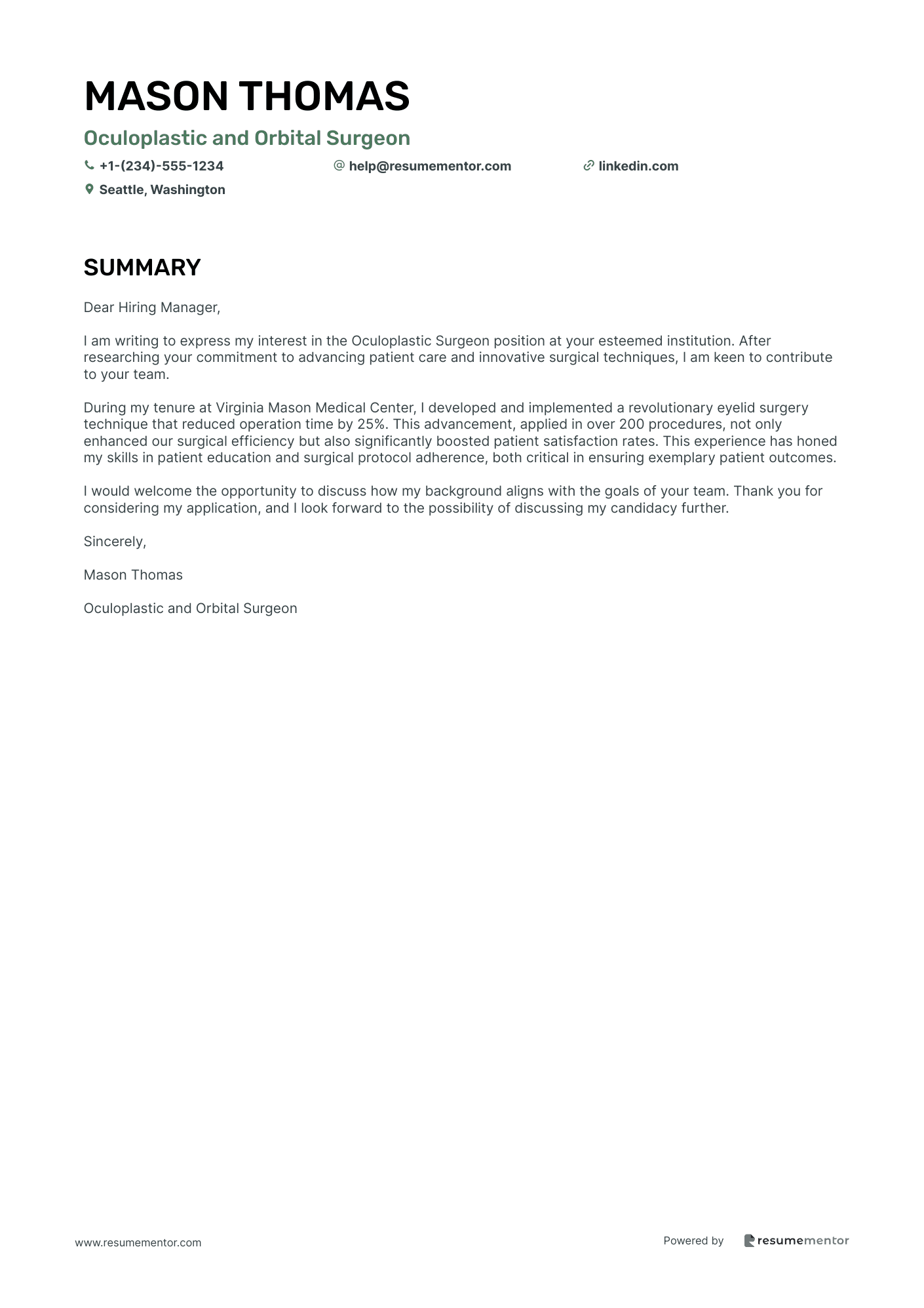
Oculoplastic and Orbital Surgeon
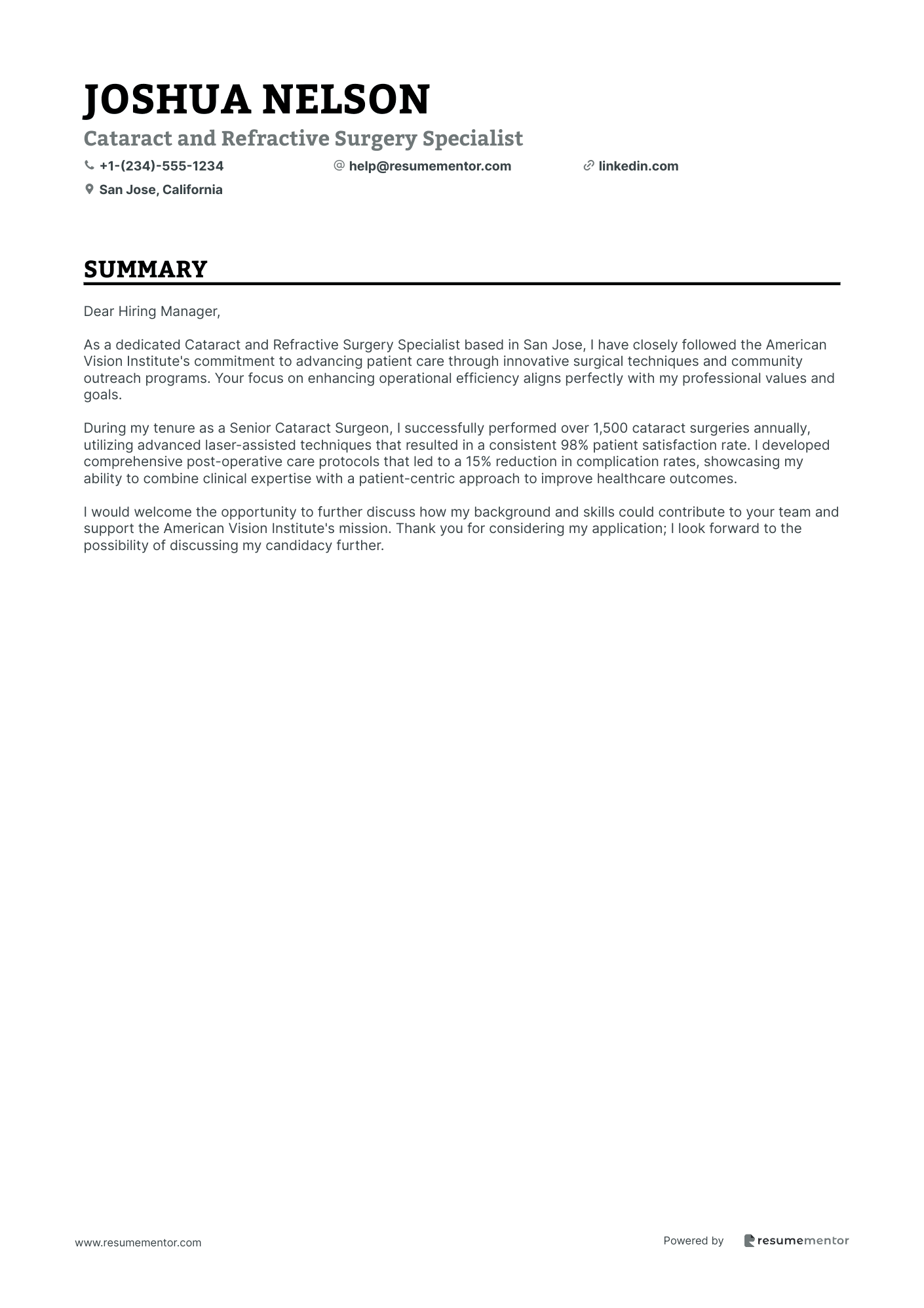
Cataract and Refractive Surgery Specialist
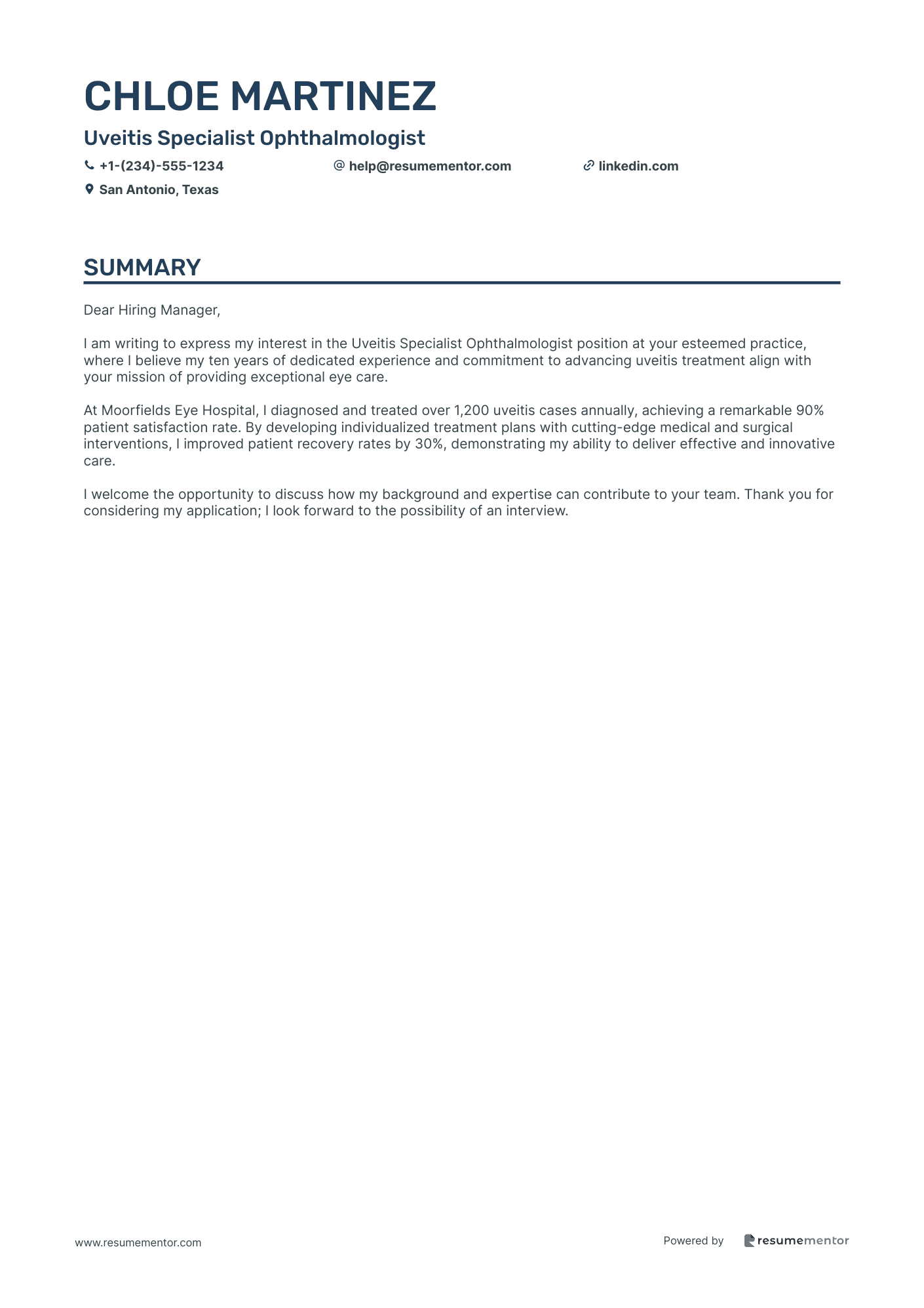
Uveitis Specialist Ophthalmologist
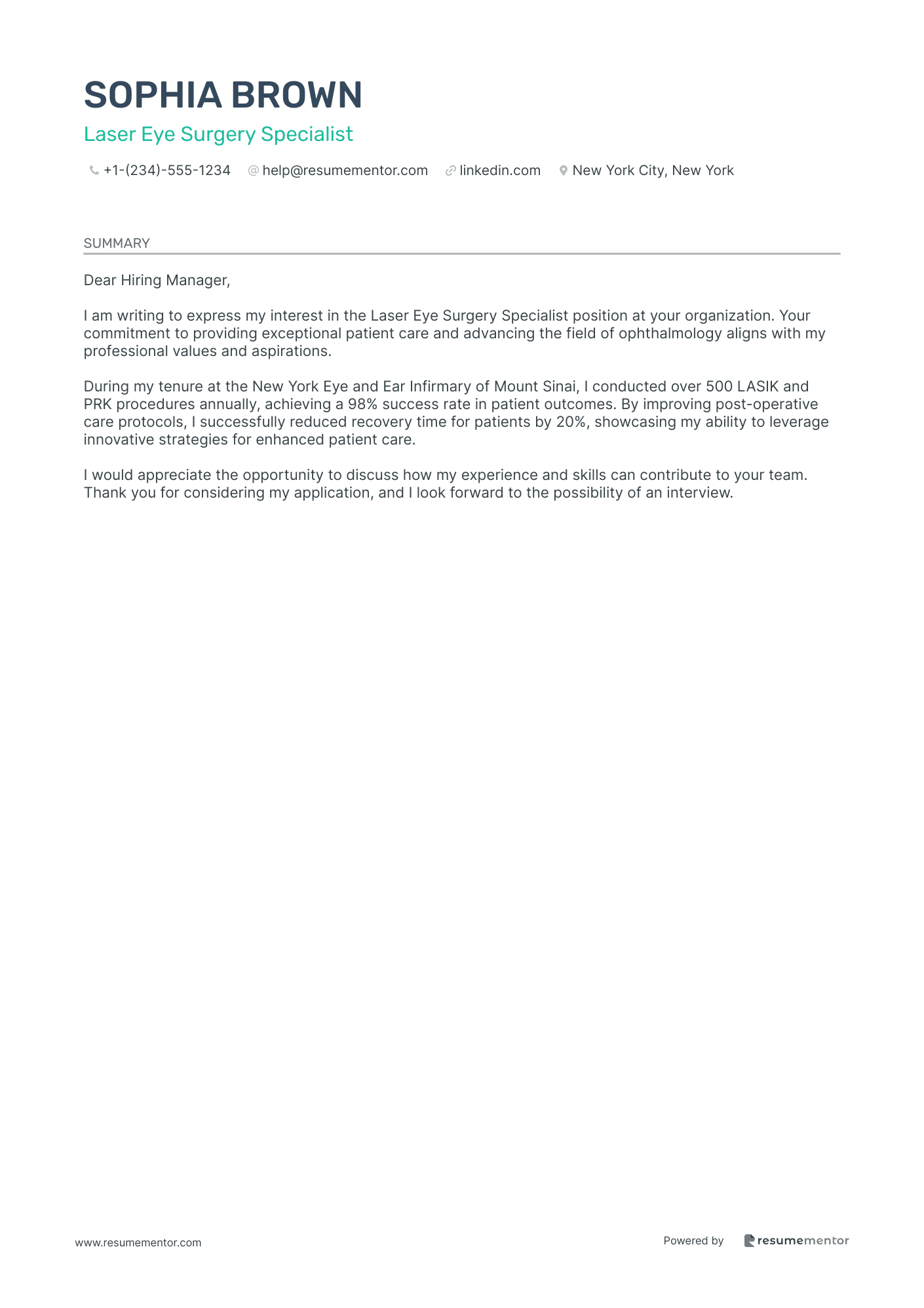
Laser Eye Surgery Specialist
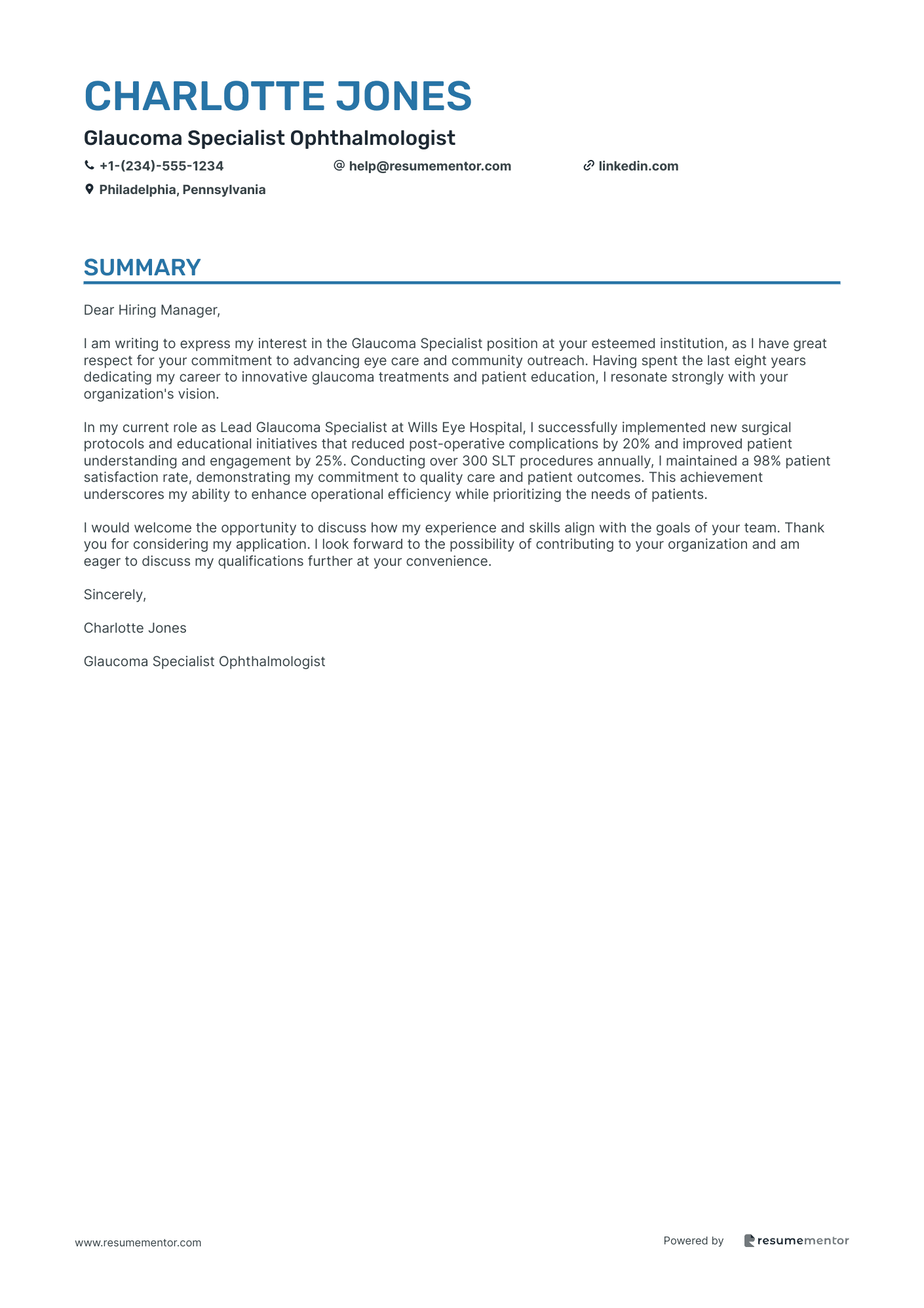
Glaucoma Specialist Ophthalmologist

Pediatric Ophthalmologist cover letter sample
Retinal Disease Specialist Ophthalmologist cover letter sample
Neuro-Ophthalmologist cover letter sample
Ophthalmic Plastic and Reconstructive Surgeon cover letter sample
Cornea and External Disease Specialist cover letter sample
Oculoplastic and Orbital Surgeon cover letter sample
Cataract and Refractive Surgery Specialist cover letter sample
Uveitis Specialist Ophthalmologist cover letter sample
Laser Eye Surgery Specialist cover letter sample
Glaucoma Specialist Ophthalmologist cover letter sample
Related Articles

Continue Reading
Check more recommended readings to get the job of your dreams.
Resume
Resources
Tools
© 2026. All rights reserved.
Made with love by people who care.
